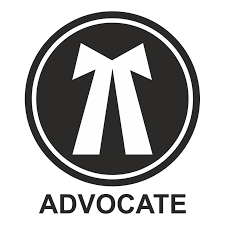
Job Vacancy Announcement- Advocate for Sapatari, Siraha, Dhanusha & Kapilbastu districts
Job Vacancy Announcement Position: Advocate (Contract - Full-Time) Number of Positions: 4 (One f
The Public Defender Society of Nepal (PDS-Nepal) is dedicated to ensuring equitable and effective access to justice for all individuals, especially those from marginalized and underserved communities. By developing a robust public defense system and advocating for systemic reform, we strive to uphold human dignity, protect fundamental rights, and strengthen the rule of law in Nepal.
PDS-Nepal's journey began as the Nepal program of the International Legal Foundation (ILF), a global organization dedicated to advancing legal aid and the right to counsel. Established in 2008, the program quickly became instrumental in addressing critical gaps in Nepal’s criminal justice system, providing free legal representation to marginalized individuals, and achieving landmark decisions in the Supreme Court of Nepal.
Formally registered as an independent entity in 2015, the program transitioned from the ILF to the Public Defender Society of Nepal (PDS-Nepal) in 2017. This transition marked a significant milestone, empowering local leadership and institutionalizing a sustainable model for justice reform tailored to Nepal’s unique needs and context.
Over the years, PDS-Nepal has achieved transformative milestones in its mission to ensure justice for all:
Advocating successfully for early access to legal counsel, significantly reducing instances of illegal detention and ensuring timely defense for those in need.
Training over 500 lawyers and setting minimum standards for legal representation, fostering a culture of defense and accountability in Nepal’s legal system.
Representing over nine thousands of clients, including women, children, ethnic minorities, and people with disabilities, ensuring fair trials and amplifying the voices of the most vulnerable.
Partnering with key stakeholders, including the Nepal Bar Association and government institutions, to reform policies and build a more robust and inclusive justice framework.
Compelling the government, through a writ of mandamus, to establish a dedicated Juvenile Court, safeguarding the rights and welfare of children involved in the legal system.
Through strategic litigation, capacity-building initiatives, and daily courtroom advocacy, PDS-Nepal addresses systemic injustices at their core. By protecting individual rights and advancing legal reforms, we aim to create a more equitable and just Nepal.